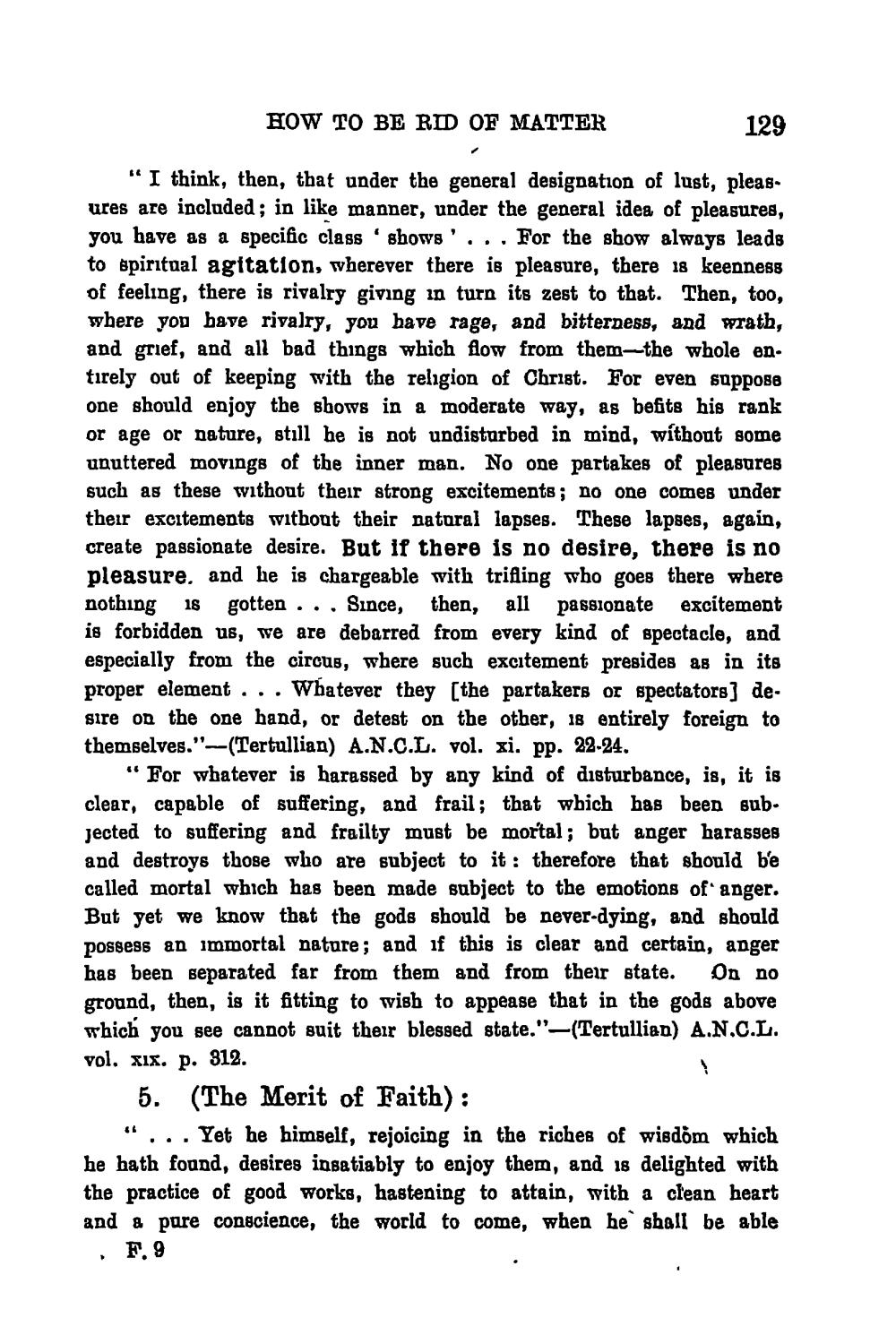________________
HOW TO BE RD OF MATTER
129
"I think, then, that under the general designation of lust, pleasures are included ; in like manner, under the general idea of pleasures, you have as a specific class 'shows' .. For the show always leads to spiritual agitation, wherever there is pleasure, there 18 keenness of feeling, there is rivalry giving in turn its zest to that. Then, too, where yop bave rivalry, you have rage, and bitterness, and wrath, and grief, and all bad things which flow from then-the whole en. tirely out of keeping with the religion of Christ. For even suppose one should enjoy the shows in a moderate way, as befits his rank or age or nature, still he is not undisturbed in mind, without some unuttered movings of the inner man. No one partakes of pleasures such as these without their strong excitements ; no one comes under their excitements without their natural lapses. These lapses, again, create passionate desire. But if there is no desire, there is no pleasure, and he is chargeable with trifling who goes there where nothing 18 gotten ... Since then, all passionate excitement is forbidden us, we are debarred from every kind of spectacle, and especially from the circus, where such excitement presides as in its proper element ... Whatever they (the partakers of spectators] desire on the one hand, or detest on the other, 18 entirely foreign to themselves."--(Tertullian) A.N.C.L. vol. xi. pp. 22-24.
“For whatever is harassed by any kind of disturbance, is, it is clear, capable of suffering, and frail; that which has been sub. jected to suffering and frailty must be mortal; but anger harasses and destroys those who are subject to it: therefore that should be called mortal which has been made subject to the emotions of anger. But yet we know that the gods should be never-dying, and should possess an immortal nature; and if this is clear and certain, anger has been separated far from them and from their state. On no ground, then, is it fitting to wish to appease that in the gods above which you see cannot suit their blessed state."—(Tertullian) A.N.C.L. vol. xix. p. 312.
5. (The Merit of Faith):
“... Yet he himself, rejoicing in the riches of wisdom which he hath found, desires insatiably to enjoy them, and is delighted with the practice of good works, hastening to attain, with a clean heart and & pure conscience, the world to come, when he shall be able
F.9




